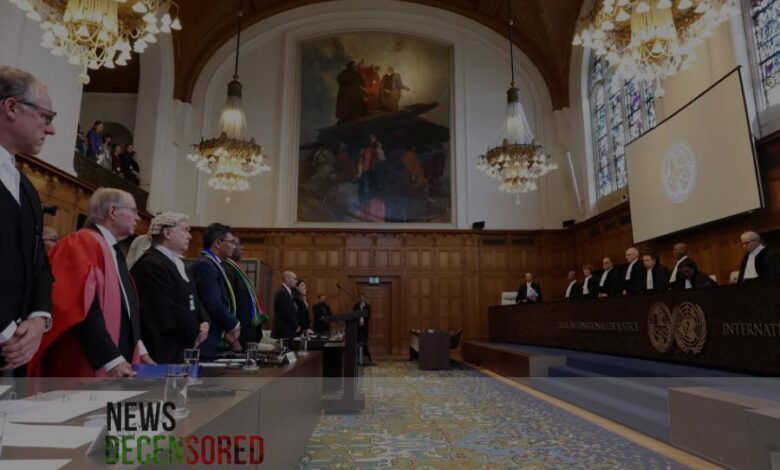South Africa Urges ICJ to Stop Israeli Assault on Rafah Amid Ongoing Genocide

South Africa has put in a formal request to the International Court of Justice (ICJ) for the Court to order an immediate ceasefire in Rafah, aiming to push this through as part of a broader case whereby Israel is accused of practising genocide against the Palestinians. This demand was pronounced at the case hearing held in The Hague as a sequel to the original cases brought in January for Israel’s military actions in Gaza.
The South African government is looking for quick action to address the displaced Palestinians who have settled in the Rafah city. This densely inhabited city is located in the southern Gaza Strip and has been under several attacks from the Israelis. South Africa’s legal representative Tembeka Ncgukaitobi underlined the disastrous conditions in his speech, explaining further that “it is a plan of a genocide to liquidate a Palestinian nation completely as soon as possible”.
When Israel is clearly warned of the chance of genocide because of the operation that they are doing, this is while the country keeps its actions in what seems to be Rafah. The IDF’s Defense Minister, Mr. Yoav Gallant, confirmed the offensive simultaneously with the ICJ session. He explained that the operation would likely continue, and the remaining troops would join the current fighters.
Rafah is a focal point of severe humanitarian problems at this time. More than 100 thousand Palestinians are crowded under deplorable circumstances that shield them from essential commodities such as bread, water, and even medical sciences. The only hospital in Rafah has been closed, so a little clinic is put under great strain, and scores of people must wait to get the required services.
Before that, the ICJ issued permanent injunctions that prescribed how Israel should help to alleviate the Palestinian suffering in Gaza. These included, for instance, sustaining necessary food provision in the Palestinian society so that they would not be deprived of basic needs at any given time. However, the most recent act of Israel – the capture and closing of the Palestine side of the border crossing of Rafah with Egypt – which is a critical point for humanitarian aid, made all the relief efforts much more difficult, as far as the real danger of the ongoing crisis is concerned.
In a written submission to the court of appeals, South Africa stressed the fact that Rafah constitutes a strategic location, the loss of which would mean the inevitable demise of Gaza’s survival. “Rafah [is the point] that must not fall, Gaza will [also] fall,” the demand denied, underlining the weaponised denial of humanitarian aid as a tactic to augment Israeli-inflicted Palestinian agony.
South African Lawyer- Adila Hassim also witnessed and joined the peaceful protest with his other colleagues, who condemned the Israeli tactics of deliberately starving the Palestinian people by resorting to cutting their supply of food and medicines. She urged the UN ICommissariat to enforce the appointment of UN peacekeepers and allow international human rights organisations and all other interested parties to access the area freely.
South Africa, in the person of Harold Lowe, did not go unheeded; Lowe warned the participants that Israel was getting closer to wiping out Gaza altogether. In the long run, he explained that this kind of message was distorting the objective of establishing justice and accountability for the crimes that were perpetrated.
Max du Plessis (an attorney) commented on Israel’s so-called humanitarian zones; he viewed them as the vicious twisting of reality. He gave an example of the Palestinians who were so weakened that they couldn’t leave the zones, and those who did find shelter in such zones suffered attacks from Israeli military men.
The current hearings are mainly about urgent measures, but that does not prevent the ICJ from taking years to fight the merits-based genocide case. Court decisions are definite; however, adoption in real life might be challenging. Then again, a legal decision by the International Court of Justice against Israel may have negative consequences for its global image and will create legal precedents of great importance.
According to the statistics presented by the Palestinian health authorities, nearly approx 35,000 people have lost their lives in the Gaza Strip due to Israel’s military campaign. Another challenge brought by the conflict is that it forced about half a million Palestinians to leave their places of origin, and, in addition to the humanitarian crisis, the situation in the region has caused further problems.




